Dr Addenbrooke's Cambridge legacy hospital 250 years on
- Published
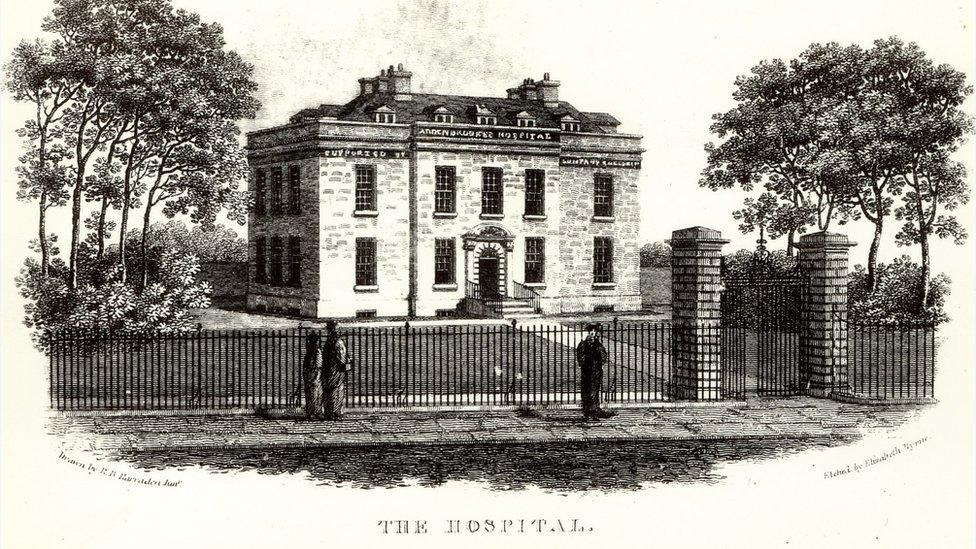
Addenbrooke's Hospital was one of the earliest voluntary hospitals in England, with 20 beds and staffed by three physicians, three surgeons and a matron, when it opened in 1766
Two hundred and fifty years ago to the day, a 20-bed hospital in Cambridge "for poor people" opened its doors to patients.
Now, Addenbrooke's Hospital treats nearly 900,000 patients a year, has an income of more than £719m and is Cambridge University's teaching hospital.
It will mark its anniversary by opening a museum at the hospital, using papers and artefacts from its archive.
Cambridge University Hospital's archivist Hilary Ritchie said one of the exhibits included a ledger from the day of its opening.
"We have the first minute book [from] 13 October 1766 and like all the other paper archives, it has never been on display before," she added.
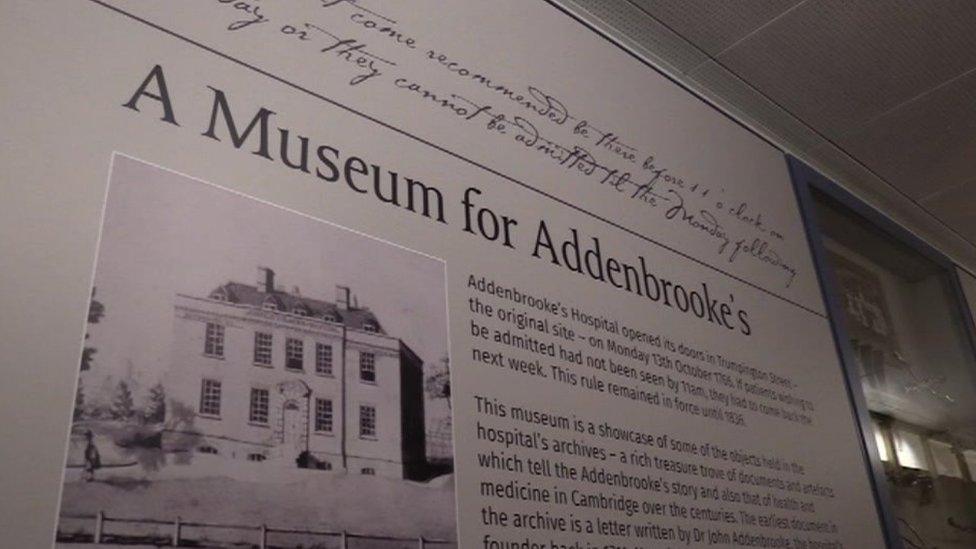
The museum has been funded by the Addenbrooke's Charitable Trust along with the Heritage Lottery Fund
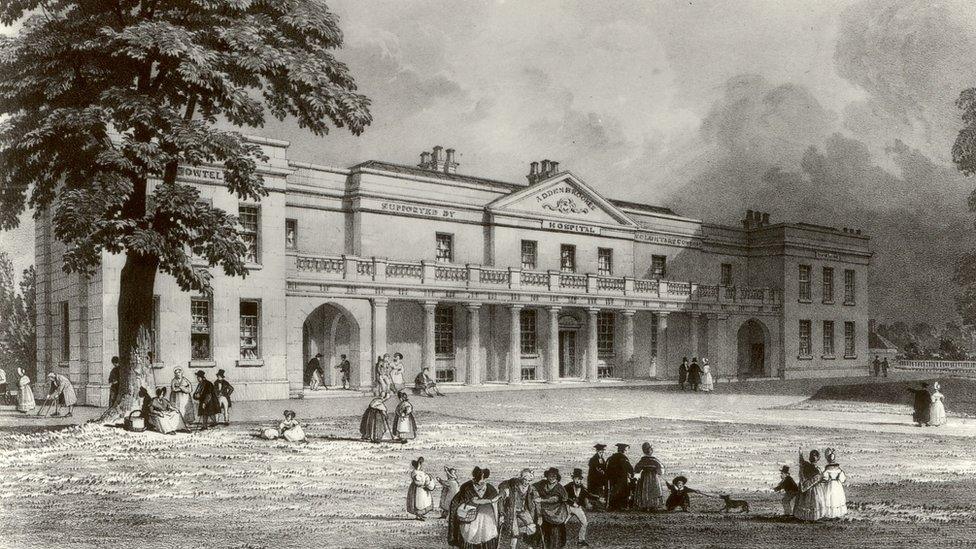
Treatment was funded by subscribers, usually the landed gentry and parishes. People had to say who their subscriber was - but if their parish paid for five patients a year and they had all been treated that year, they were told the money had run out
The original building on Trumpington Street was funded by a bequest of £4,500 - worth about £13m today - from necromancer and St Catharine's College, Cambridge fellow, Dr John Addenbrooke, who died aged 39 in 1719.
Miss Ritchie said not much was known about him.
She added: "He was a very mysterious man and burnt all his documents, including a portrait, before he died."
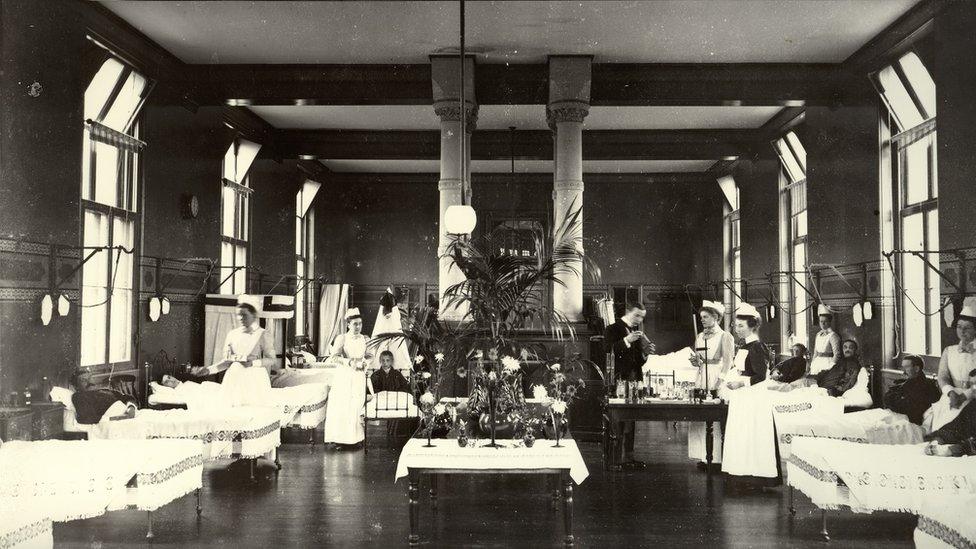
The first probationer or student nurses entered Addenbrooke's in 1877 and from 1905 they received payment during their training
In the later 19th Century, the hospital strengthened its links with the University of Cambridge, due to the work of physician George Paget and surgeon George Humphry.
However, when they died the connection ended.
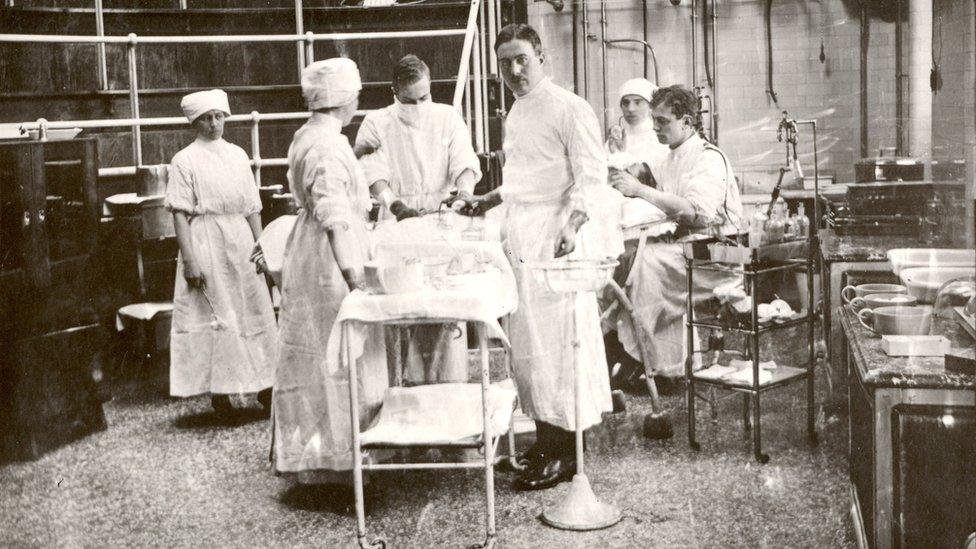
Addenbrooke's was not used to train Cambridge medical students in the early 20th Century "because it treated a lot of people from the Fens who had common or garden ailments"
Miss Ritchie said: "University students would do the theory here and do their clinical practice in London because they didn't think that the right kind of patient came to Addenbrooke's."
The hospital began its move to its current site on Hills Road in 1961, which included a neurological centre and "that's when it all changed".
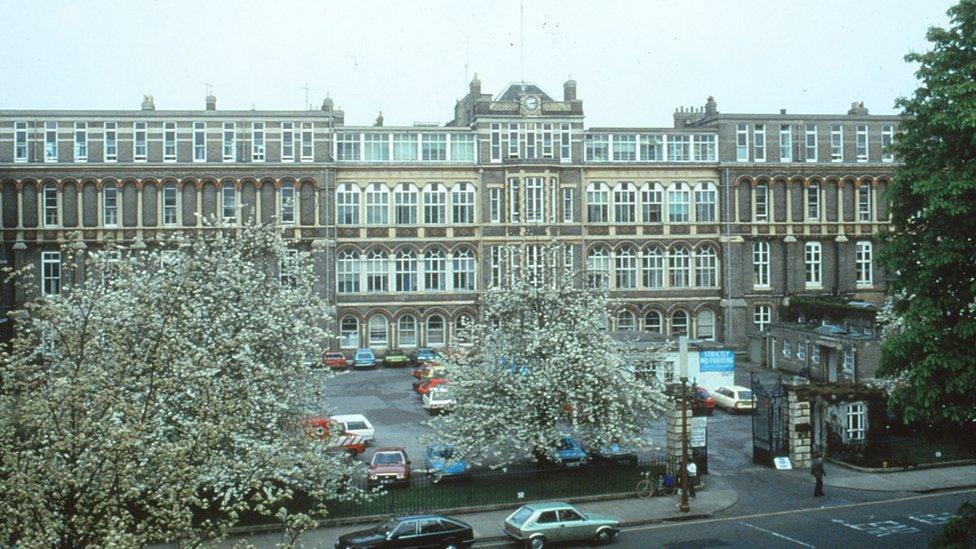
The Trumpington Street building was eventually found a new use as Cambridge University's Judge Business School
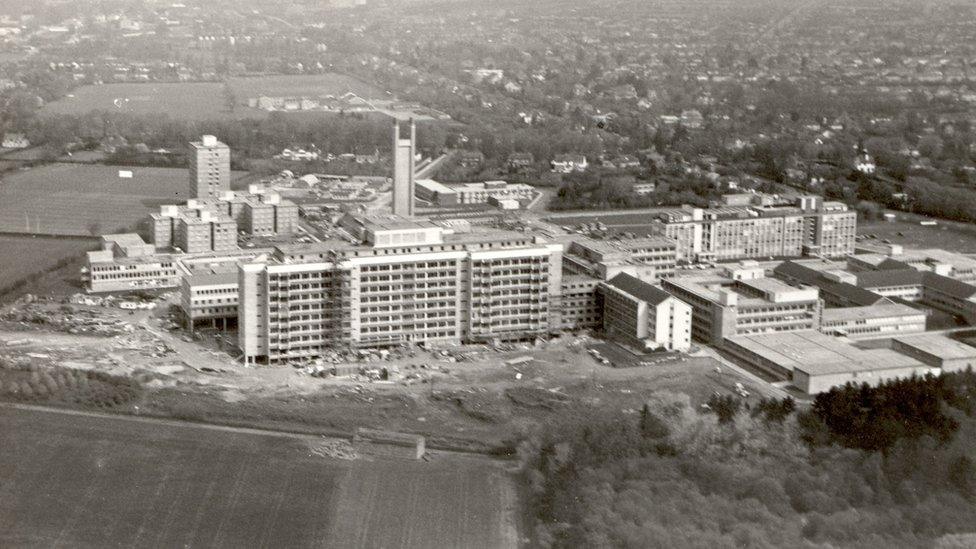
By 1972, the hospital was already sprawling across the south Cambridgeshire landscape as its clinical programmes expanded
Surgeon Roy Calne developed links with Terence English at nearby Papworth Hospital, to expand the hospital's transplant programme. The world's first heart, lung and liver transplant took place jointly with Papworth in 1986.
Addenbrooke's Hospital is now part of Cambridge University Hospitals NHS Foundation Trust, including the Rosie Maternity Unit.
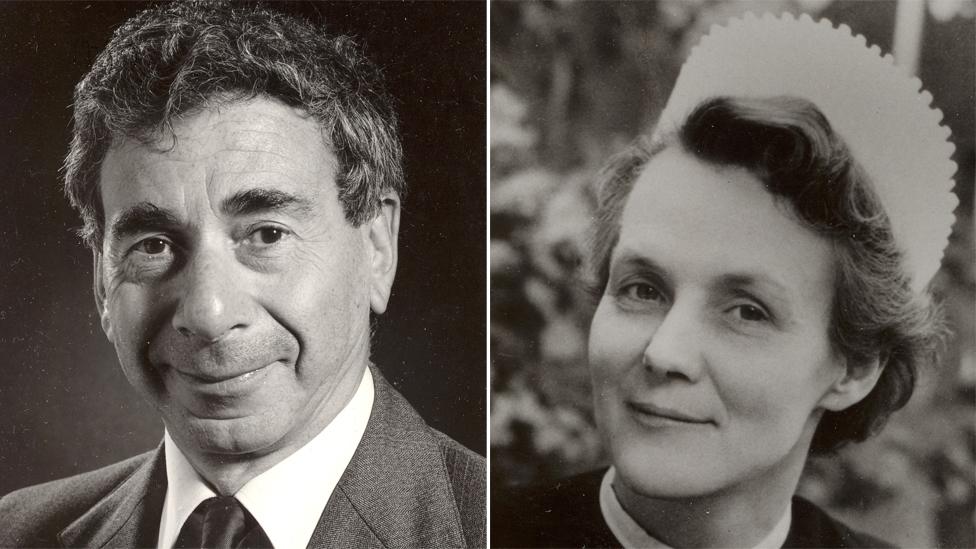
Addenbrooke's last old-style matron Mima Puddicombe (right) oversaw the move to the new site and retired in 1970, while Prof Sir Roy Calne (left) helped develop the hospital's reputation for pioneering transplants
The trust, which has a deficit of £32.3m, external, has had a troubled few years after Dr Myles Bradbury was convicted of abusing young cancer patients.
In 2015, the Care Quality Commission found its governance to be inadequate - although it rated the quality of its care as outstanding.
Following an inspection in May, the rating was lifted to "requires improvement".
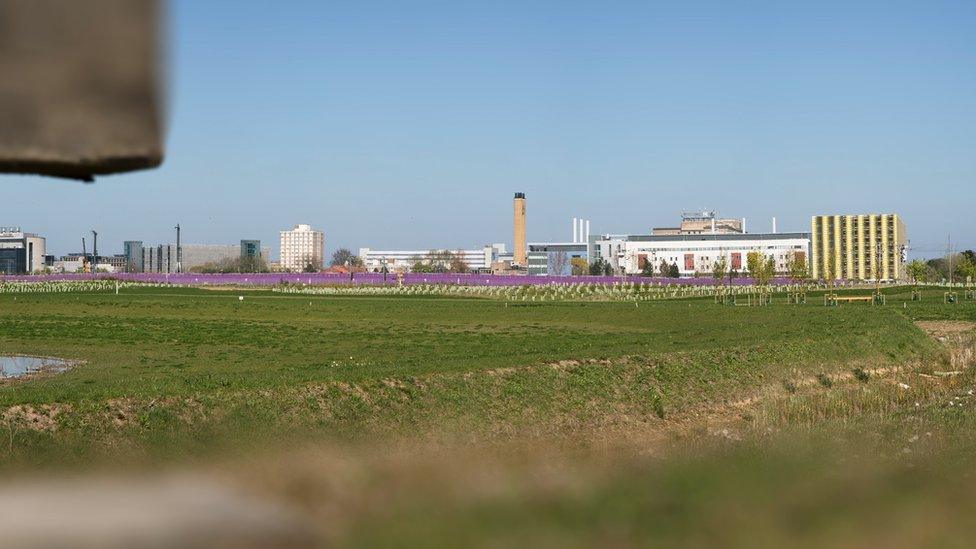
The hospital is now at the heart of the Cambridge Biomedical Campus, which includes Cancer Research UK and the Medical Research Council. Papworth Hospital is due to move there, as is the pharmaceutical company AstraZeneca
- Published26 October 2015

- Published22 September 2015
- Published22 July 2014
